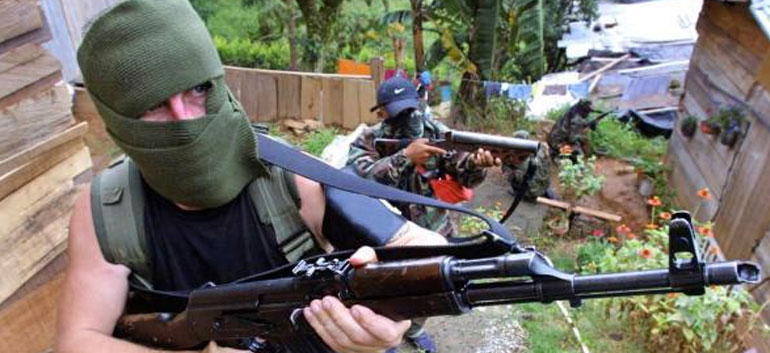More than 250,000 people in Cali are highly vulnerable to violence and criminal exploitation, according to a risk report published by Colombia’s Ombudsman on Monday.
Some 55% of the districts in Colombia’s third largest city were classified as high risk areas.
MORE: Cali Crime Statistics
An ongoing turf war between the “Los Urabeños” and “Los Rastrojos” neo-paramilitary groups, both heavily involved in Colombia’s domestic and international drug trades, was attributed for much of the violence affecting the capital of the western state of Valle del Cauca. Cali also faces a prominent threat from the 30th Front of the FARC, and a number of other militant units from the oldest rebel group in Colombia.
Compiled by the office of Colombian Ombudsman Jorge Armando Gomez, the report went on to document that 17 of the 22 “comunas,” or administrative districts, within Cali contain illegal groups. There are perhaps as many as 134 gangs in the city of Cali, though many may adhere to larger “bacrim,” or criminal umbrella organizations bands, such as Los Rastrojos and Los Urabeños. The groups most at risk from criminal activity are “boys, girls, adolescents and youth,” according to the report, an estimated 2,134 of which are active in one gang or another.
In a November 2013 interview with Colombia Reports, Cali Ombudsman Andres Santamaria explained that a troubled school system and lack of social programming and opportunity for employment or productive activity drove many of the city’s youth into gang life.
MORE: Cali gang’s crisis represents ‘total failure of social institutioins’ Cali Ombudsman
According to Monday’s report, Cali witnessed 1,964 total homicides in 2013 and at least 861 contract killings, up from the previous year’s total of 1,861. At 85.6 homicides per 100,00 people Cali has the highest homicide rate of Colombia’s major urban centers.
Both Medellin, which has roughly the same population as Cali, and Bogota, the Colombian capital, have seen homicides go down in recent years, as the cities’ drug interests have forged temporary ceasefire arrangements and shifted their focus to extortion and other, less attention-grabbing forms of violence.
As the report notes, the proliferation of homicides is not limited to Cali, with 3,329 total homicides in the Valle de Cauca department in 2013, 74.6% of which occurred in the cities of Cali, Buenaventura, Palmira, and Tulua.
So far, this year has seen a slight drop in homicides, with 142 people slain as of February 3. The reduction could be the result of a partial citywide gun ban put in place starting December of last year.
MORE: Cali homicides drop 34% in wake of military imposed gun ban
Homicide, however, is not the full story. According to the report, there were 38 cases of kidnapping in 2013, a 63% increase from 2012. Also documented were 357 cases of extortion, a 60% increase from last year, and 10,678 cases of forced displacement in Valle de Cauca in 2013. Displacement in particular is problematic, as violence in Cali is fueled by a large informal urbanization process that taxes the city’s social net and contributes to the dire conditions that many of its citizens live under.
Non-lethal forms of violence can be much harder to accurately measure. In his November interview, Ombudsmen Santamaria told Colombia Reports, “the level of intimidation has reached a point where a very low percentage of crimes are even reported. How do you quantify the extortions, the violent thefts, the assaults, the rapes, when these things are happening everywhere, all the time and no one is tracking it or talking about it?”
Ombudsman Gomez ended his report by calling on local, regional and national authorities to increase their security budget in concurrence with the implementation of new social programs to provide alternatives for criminal actors.
The Colombian Ombudsman (Defensoria del Pueblo) is a state organization designed to promote the human rights of all Colombians.
Cali, Valle del Cauca
Sources
- Interview with Andres Santamaria
- 250.000 habitantes de Cali en alto riesgo por disputa entre “bandas criminales” (Defensoria del Pueblo Colombia)
- BaCrim tienen en riesgo mas de 250 mil por disputa de terrenos (CMI Noticias)


